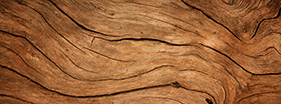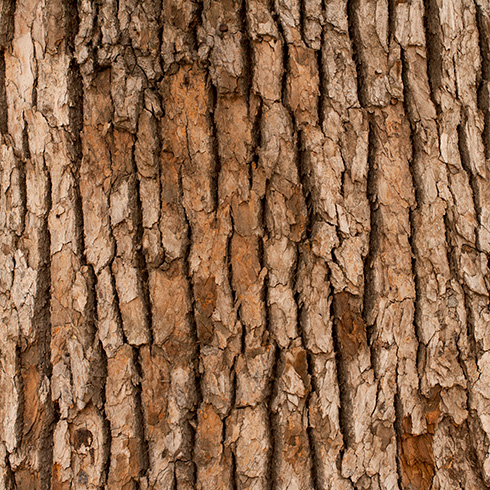YOUR FINANCIAL SECURITY IS IMPORTANT TO US
Protecting Your Accounts
Mountain America strives to provide the best available security for your digital banking experience.


Helping you keep your data secure
We constantly work to maintain strong levels of protection, proactively monitor for new threats and adjust our systems to mitigate those threats. Our protection strategies include:
Strong username
To help protect members’ personal information, we no longer allow them to use their account number as their online or mobile banking username. Creating a strong username is just as important as creating a strong password. Here are a few tips for choosing a good username:
- Pick a username you can remember but isn’t too easy for other people to guess.
- Don't include your birth year, email or mailing address or full name.
- Never use account numbers or your Social Security number.
- Use different usernames for different accounts.




Layered security
We use multiple layers of protection to guard your information, such as advanced encryption technology, multi-factor authentication (one-time codes sent via text or email), biometric login with fingerprint or facial recognition, and security questions.
Fraud monitoring text alerts
If we notice suspicious activity on your Mountain America credit or debit card, we will send you an SMS text message asking you to confirm the transaction. Legitimate texts from Mountain America will not include links.
Courtesy calls
If a transaction appears to be outside your normal pattern, we may call you to verify transactional information on your account. We will not ask for your personal information like a card number, PIN or codeword.
To ensure you receive these important fraud alerts, please keep your contact information up to date in your digital banking profile. If you need to reach us, please visit the Contact Us section in the mobile app or call our service center at 1‑800‑748‑4302.

Additional security services
In addition to the account security we have in place, we offer services to protect your digital banking accounts.
With MyStyle® Checking, you'll receive identity protection, ID theft assistance and monitoring for suspicious activity on over 1,000 databases. Get details.
Monitor your account 24/7. With our free alerts and notifications service, you can create customized text and email alerts based on balances, approvals, transactions and more. Plus, you’ll receive these alerts in near-real time. You can even have them sent to multiple phone numbers and email addresses. See how.
If you are alerted to suspicious activity on your account and want to stop transitions or if you misplace your Mountain America card, you can temporarily block and unblock it using card manager on the mobile banking app. You also can request a new card if yours is lost or stolen. Take a look.
With biometric login, you can access your account using your fingerprint or facial recognition. Not only is it convenient—you don’t have to memorize numerous passwords—it’s secure, too. Learn more.
Paper statements can be stolen and lead to identity theft. Receive electronic versions of your Mountain America account and credit card statements through digital banking. It will save paper and reduce clutter. Learn more.
Paying your bills online is safer than sending payments and personal information in the mail. Find out more.
Code words allow us to swiftly verify your identity and help protect you from fraud. Add your code word when you open an account or any time afterwards at your nearest branch. We will ask for your code word during branch transactions and when you call the service center.
Important recommendations
Start by checking for operating system updates (Windows or MacOS). We recommend turning on automatic updates to ensure you get critical security patches as quickly as possible. Then update your browser (Internet Explorer, Firefox, Chrome, Safari, etc.). Finally, update any other software you use on your computer such as Microsoft Office, Java, Adobe Acrobat and antivirus software.
Choose antivirus software from a reputable publisher and keep it updated. There are many fake antivirus solutions around, so make sure you research the publisher before you buy.
Don’t respond to emails or texts requesting personal information. Legitimate individuals and companies will not require you to provide or verify sensitive information via a non-secure means such as email. If you have any doubt at all, contact the individual or company and verify the information over the phone. If you have received what appears to be a phishing email from someone pretending to be a Mountain America employee, do not respond to the request. Instead, forward the email as an attachment to phishing@macu.com, and we will take appropriate action.
Thieves can be experts at copying names, URLs and web pages of legitimate institutions. Contact the institution directly if you have questions about a site’s legitimacy.
Manage your privacy settings for mobile apps and online accounts. It’s the best way to ensure you aren’t giving companies or other merchants access to information you want to keep private.
Avoid using free Wi-Fi networks if possible—especially in high-traffic areas such as airports, cafes and other similar locations. They are prime targets for hackers. If you must use an open Wi-Fi network, only visit secure sites that begin with https.
Be aware of what you are sharing through social media and wearables such as fitness trackers and the Apple Watch. Log out of social media and other apps when you are not using them, and don’t keep them open in your browser. Set your privacy settings so only your friends can see what you are posting.
A firewall helps protect your computer from unwanted intrusions. Most operating systems (Windows, MacOS, etc.) have a firewall included, but it may not be enabled. Check the Help section of your operating system for instructions on enabling and configuring the firewall. Many wireless routers used at home also have firewall functionality. Check the router documentation for details.
You should not use the same password for multiple websites. Many hackers who steal passwords will try to use them to log in to other sites, or they will post them in an online forum for others to use. You can securely store all your passwords so you don’t have to remember them by installing a password manager. A master password must be chosen to gain access to the password manager. Make your master password difficult to guess and never write it down.
Avoid using birthdates, pet names, phone numbers, single words found in a standard dictionary (any language), family members’ names or anything that may be guessable with minimal research. Don’t use a password more than once, and don’t write them down. Instead, use a mixture of capital and lowercase letters, numbers and symbols, and make sure to use a minimum of eight characters.


Fraud prevention hub
Get the scoop on the most common scams and learn tips to protect yourself.

How to report fraud
Learn what to do in the case of identity theft or if you receive a communication from Mountain America that appears suspicious.

Transaction disputes
Find out what steps to take if you have an unauthorized charge on your card, billing discrepancy or unfulfilled refund.